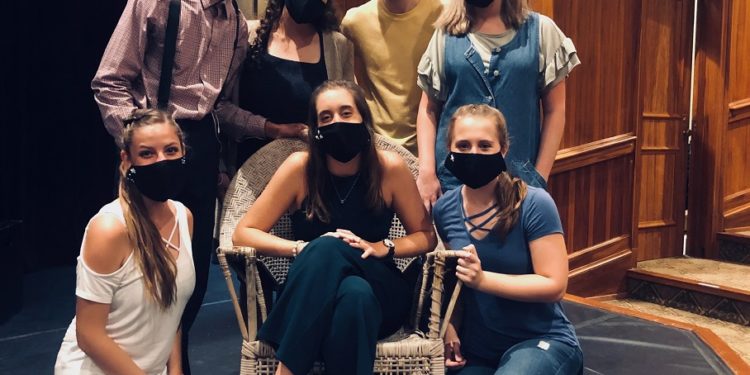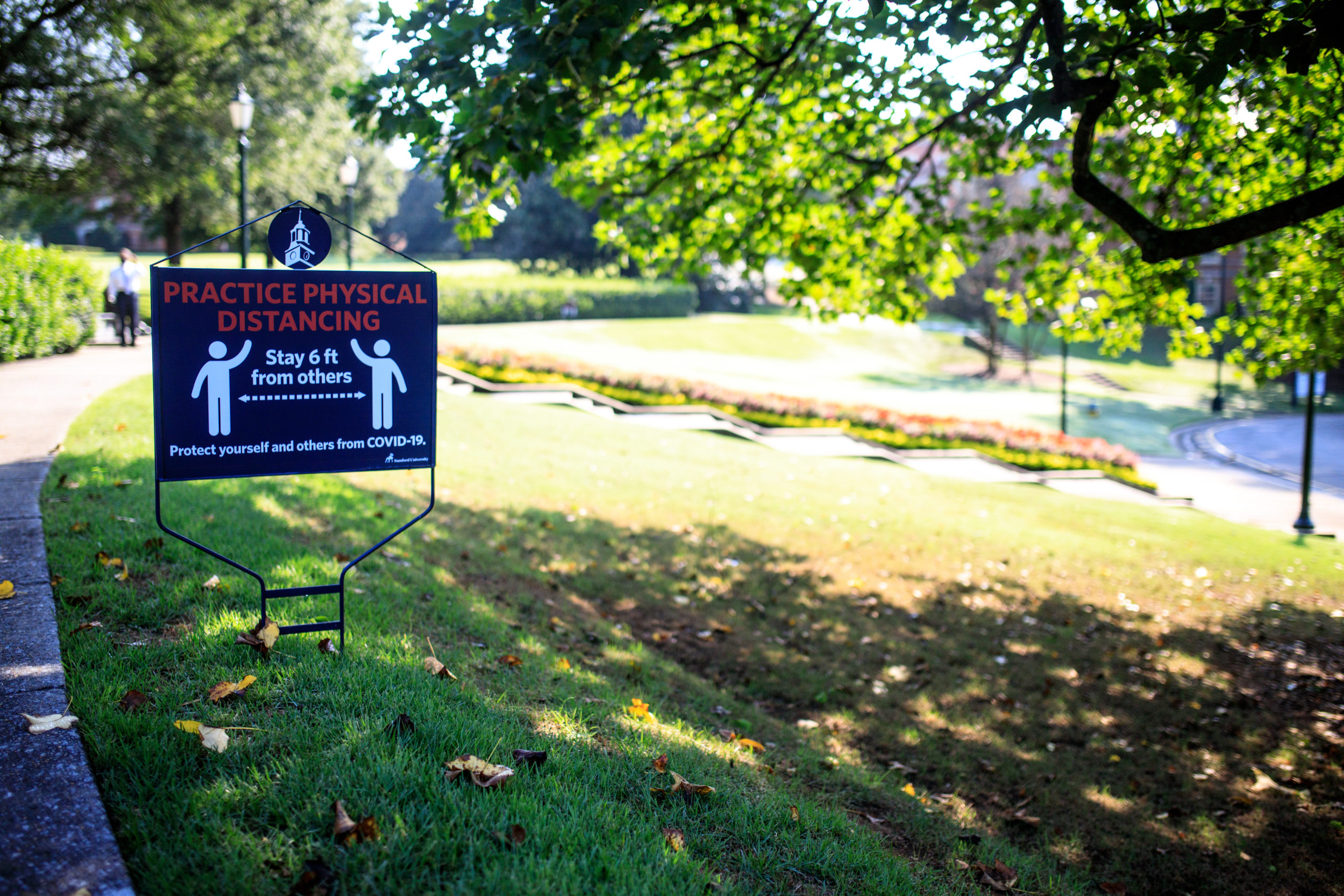Finlay Coupland
On Sept. 28-29, a reduced audience gathered in Bolding Studio to experience the Samford Theatre Department’s first full in-person show of the semester. A handful of creatively-starved actors and crew members came together to prepare “The Boy Who Stole the Stars.” Lilly Welch, a Theatre for Youth major, directed the show as part of her senior capstone project.
Due to COVID-19, Welch had to make some creative adjustments to the show. Throughout the duration of the play, the actors wore masks that complimented their costumes and maintained physical distance. To encourage social distancing, the actors used the entire room to perform—not just the stage. Because the audience seating was limited, Welch offered a virtual viewing option via Zoom.
Braydie Aldrich, a sophomore Theatre for Youth major who plays the main character in “The Boy Who Stole the Stars,” gave insight into how the cast and crew followed the COVID-19 guidelines during their rehearsals.
“We definitely tried our best to follow the guidelines and be safe in rehearsal,” Aldrich said. “Also, I feel like each of the actors tried their best to make good decisions outside of the rehearsal.”
Welch directed and put on the production in less than four weeks. This hopeful play focuses on the close-knit relationship between a grandson and his sickly grandfather. It’s this same tight bond that helps the grandfather learn to cope with old age and the realization that his time is running out.
Aldrich elaborated on what it was like working on “The Boy Who Stole the Stars” and what the show meant to him.
“It felt like a very personal experience, because it made me go back and remember how it was when I lost my grandmother,” Aldrich said.
Though the show depicts the sadness of aging, it provides a hopeful tone to the audience. The reason Welch chose the show was for its hopeful message, and she shared what this production has meant to her.
“We are in a world where the mentality is negative at the moment because of COVID-19 and all the other issues that are going on in the world that are causing tension,” Welch said. “This story was important to me because I felt like it provided hope. It provides hope that even when things are rough and it seems that there is no end to it, there is always joy to be found.”





